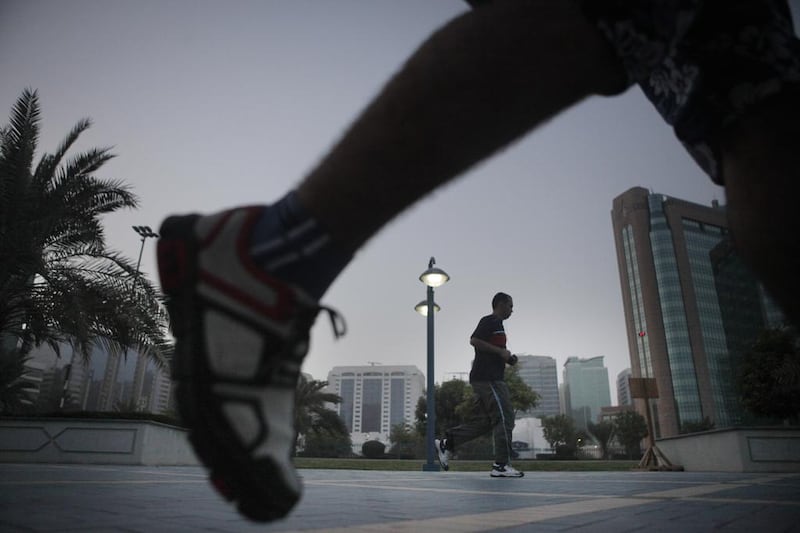The advice about exercise is not appropriate (To lessen bloating, don't over-exercise, says nutritionist Laura Holland, May 4). Noticeable water retention due to exercise would only occur after very extreme exertion – not something most people need to worry about – and even then it is only temporary.
Getting lots of exercise is essential for a strong and healthy body. If you advise people to do less exercise, they are more likely to get out of shape and “bloated” than the gym bunnies who do actually work to stay in shape. If you are not exercising to the point of exhaustion on a fairly regular basis, it is not going to make a significant difference.
I am astonished to read this bad advice considering the obesity problems that currently afflict the UAE’s population. People need to exercise a lot more, and doing so to exhaustion is the primary way to achieve progression.
P Jenkins, Dubai
What legacy will Singh leave?
I refer to the article Manmohan Singh leaves office amid storm of criticism (May 5). By now the whole world knows what he has done to India as prime minister. If he could remain unperturbed during all these years amid vociferous criticism from every corner of the country and beyond, there is no reason to believe he will feel otherwise, as it has been suggested in the article.
I hope whoever becomes prime minister reverses the damage Mr Singh has done to the country, although it would be tough to clean up the mess he leaves behind.
Sunita Joshi, Dubai
Mr Singh can leave office with a great deal of satisfaction that he rode out the global economic crisis and instituted far-reaching reforms in the country especially for the downtrodden.
He showed our aspiring leaders how to run the country by consensus. Those who suggest he should seek asylum truly deserve it for themselves.
His gentlemanly behaviour and ascetic nature is true to a great Indian statesman. Mob democracy doesn’t produce great men and women of character.
Francis Eduk, India
Keep children safe while driving
I am writing in reference to Rym Ghazal's opinion article Fast drivers make me so furious with the way they behave, (May 8).
What annoys me the most is to see babies, and toddlers jumping around in the vehicle and often putting their hands and heads out of the window on busy roads in Dubai and Sharjah.
It is very sad to see that parents are not concerned about the safety of their children.
They need to realise that not using child seats can be fatal.
Aakanksha Kalia, Dubai
Message of advert is ambiguous
In the May 8 edition of The National, the half-page advertisement on page 14 by DownLoad CityGuard shows two pictures of lovely green grass and some trees in the background. Presumably they were taken in one of the city’s many parks.
One of the pictures is marred by a huge heap of rubbish – plastic bags, bottles and cardboard. The word “before” is printed on the picture with the rubbish. The word “after” is on the picture with the pristine stretch of grass.
Thus, the message here is: leave all your rubbish on the spot, “afterwards” it will all be cleared away by magic or the municipality’s men.
Surely, the message should be the opposite: the place is pristine and clean “before” you arrive for your picnic. Do not mess up this place and leave your rubbish “after” you finish your picnic.
Dr Frauke Heard-Bey, Abu Dhabi
We must strive to save our planet
I am commenting on the article Sustainable living: Reflective paint by Masdar make UAE homes more efficient (April 20). It helps very little in the wider context of global warming, but the real issue is our effort to minimise dependence on hydrocarbons.
It’s very clear that we are destroying the Earth, and unless we reduce carbon emissions we will be forced to look at alternatives that have unintended consequences.
Already scientists have developed plans and conducted tests to either extract excess carbon dioxide or shield the Sun’s rays to reduce excess heat that has been created by greenhouse gases. But each of these controls has unintended consequences, which could disrupt a very complex ecosystem that we don’t fully understand. On the flip side, what’s the consequence of doing nothing?
Randall Mohammed, Abu Dhabi





